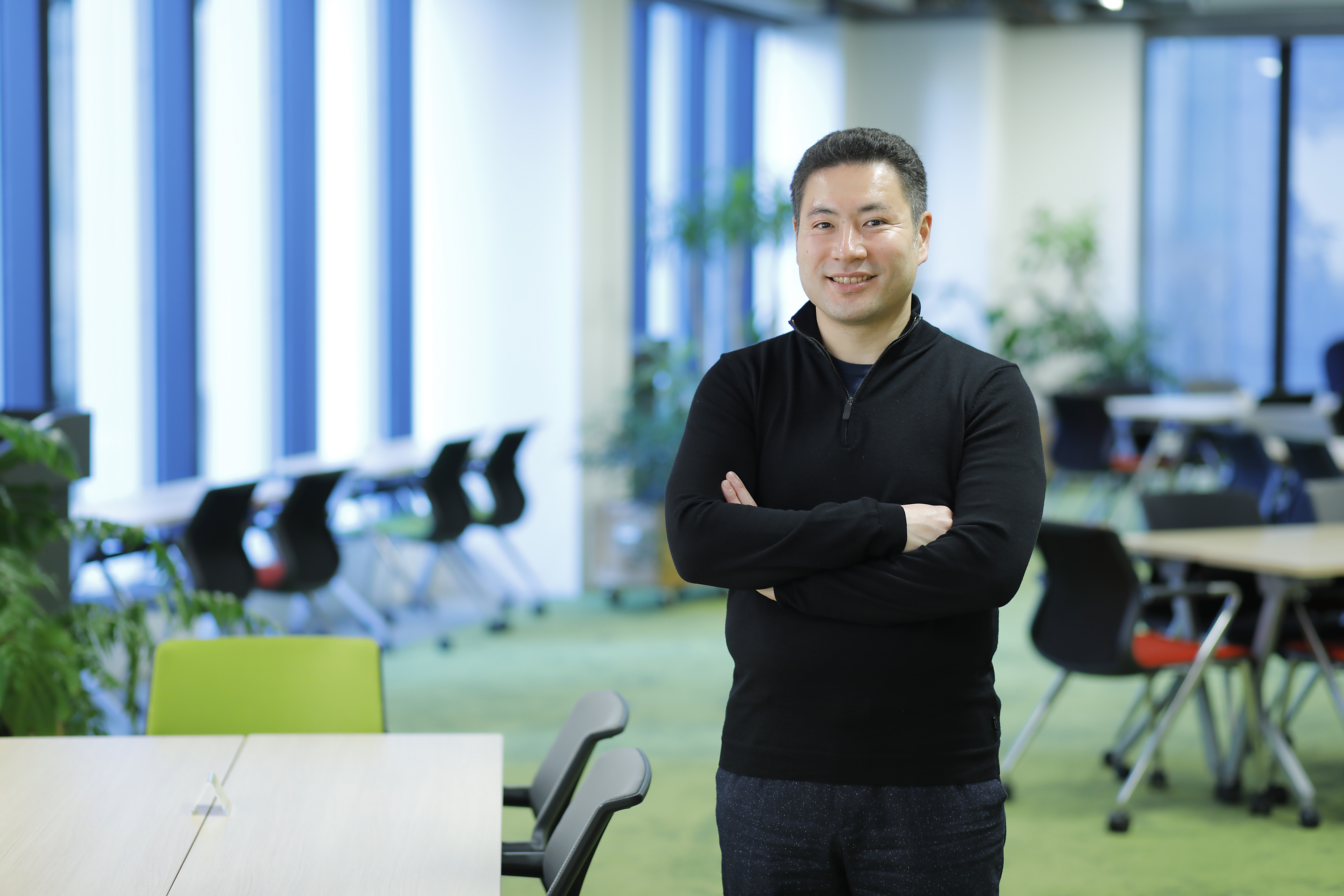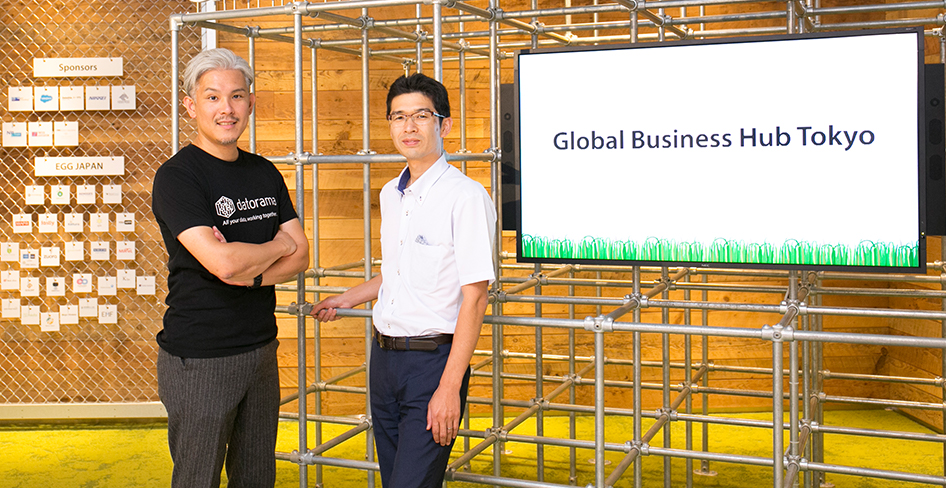What is the secret to emerging victorious in an era where the basic strength of new electric power is put to the test?
ESG Japan
Country ManagerHideki Ando

Interview: Toru Uesaka / Editing: Kanae Maruyama
What values do people in growth companies have? What do they look for in the places where they work and the people with whom they work? What do they value in order to improve their work performance? These interviews are focused on overseas growth companies and cutting-edge Japanese venture companies that are currently gaining momentum.
This time, we’ll be hearing from Hideki Ando, a country manager at ESG Japan, which is developing business packages for retail power companies in SaaS.
INDEX
Born out of the liberalization of the US market
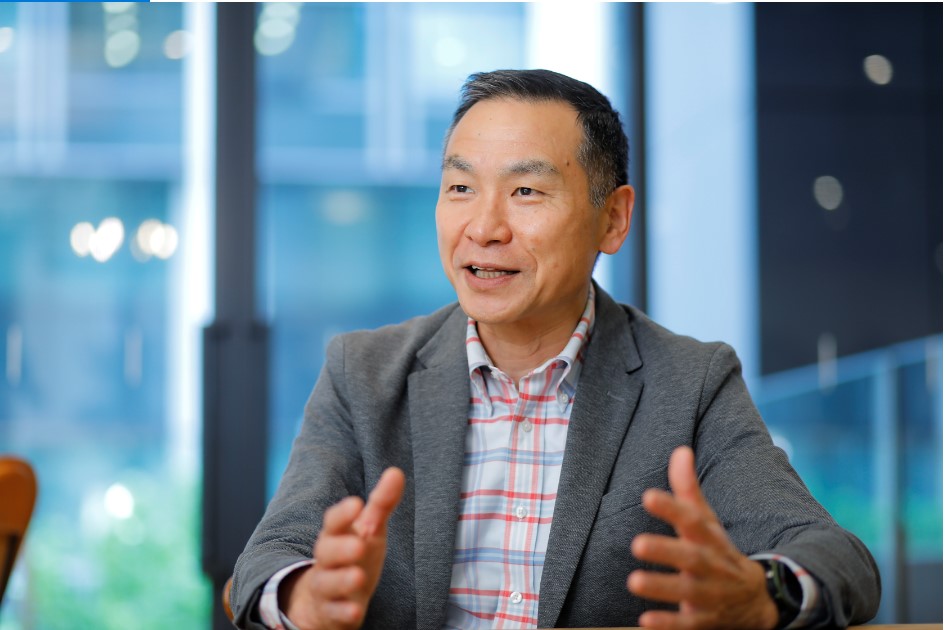
In 2016, Japan liberalized power retailing. Electric power companies such as Tokyo Electric Power Company and Kansai Electric Power Company used to create, send, and sell power in one package, but this made it free to retail power not only to factories and other businesses but also to regular households. As of today, about 700 businesses have entered the market.
“We at the Energy Service Group, ESG, provide business package software to retail power companies that sell power as a single product, so-called ‘new electric power.’”
The United States liberalized power retailing some time ago, with ESG being founded in Boston around that time in 1998. They opened an office in Japan in 2016 when Japan liberalized.
“In the United States, there are about 13 states that have liberalized their markets, and many new electric power companies have been doing business there for the past 20 years or so, going through the twists and turns of successes and failures. Since you can’t build power stock, it is necessary to procure only as much power as can be sold, meaning that it is essential to have a solid supply and demand plan. If this is not possible, power bills have to be raised or revenue is lost.
Even in Japan, the price of power soared last summer and winter, and quite a few businesses suffered major blows. Furthermore, since power is a product that is difficult to differentiate with, there is a tendency to compete by lowering prices.”
The “retail power business” is simple but not easy

Retail power companies don’t make power, so they have to purchase power, primarily through procurement from power generation companies and from the market to cover shortfall. In the market, they buy power while looking at the balance between supply and demand or sell surplus power. In fact, it’s a simple business, but it’s not an easy one.
“There have been a series of entrants in Japan, but it is an oligopolistic market where the top 20 are said to account for 80-90% of total sales. This is because companies that have a BtoC foundation, such as gas companies, oil companies, and telecommunications companies, can make offers to customers they already have.”
When a customer switches power companies, supply starts through a procedure called “switching.” The business operator issues an invoice for the amount used under the promised rate plan, sends the invoice, and collects the money. ESG provides this sequence of events in packaged systems.
“It’s not a very complicated model, so, if you have about 1,000 customers, you can do it manually in Excel by yourself. But, if you have 10,000 or more, that will not be the case. The introduction of a package system that incorporates industry-standard business flows in advance is the fastest way to systematize.”
On the other hand, the top 20 companies tend not to need a new system because they have a huge billing system from their original business. You could say that ESG targets 200 to 300 companies in the middle range below the top 20 companies.
Smart meters “visualize” the power usage trends of individual households

There is another reason why retail power companies should proceed with systematization. In ordinary households that use power, an ID is assigned to each power meter, but, when someone switches to a new power, the power meter is automatically replaced by a smart meter. Smart meters have a mechanism to measure the power used by the household every 30 minutes.
“In the past, power company technicians would visit each house, check the meter readings, and issue invoices based on that, but, with the new electric power, that will no longer be the case. Smart meters are a kind of IoT. They record everything.”
Not only that, but, since power consumption values are generated every 30 minutes, it is possible to grasp complete data, reflect them in demand forecasts at 30-minute intervals, and use them in procurement planning.
“What happens when you know the values at 30-minute intervals is that you can see power usage trends. For example, if the household has a child in elementary school, a father who is a company employee, and a mother who works part-time, you can easily imagine that power won’t be used after 9 a.m. until the evening when the mother comes home from her part-time work.”
On the other hand, the amount of power used will increase during the evening as soon as the father comes home.
“Smart meters allow us to analyze these road curves. So we can propose a price plan for not using power during the day but only during the night according to each customer’s life pattern. There are various styles, such as not using it on weekends or not using it for a certain period of time, so you can adjust the power bill by hour or period.”
This kind of smart meter analysis cannot be done manually in Excel. That’s where ESG packages come into play. It is useful for analyzing customer usage times.
“I think it is an obvious function to be able to accurately handle billing in cases such as when a power-using customer moves and to be able to perform industry-specific paperwork such as processing billing by layer, including headquarters and stores. A key feature of ESG is that we contribute to sales strategy and the like, such as being able to freely create price plans at low cost to attract customers.”
Packages for retail power companies, a fairly specialized and narrow niche. This is a company that is expanding globally in the United States and Europe.
The “determination” and “strengths” of a specialized business
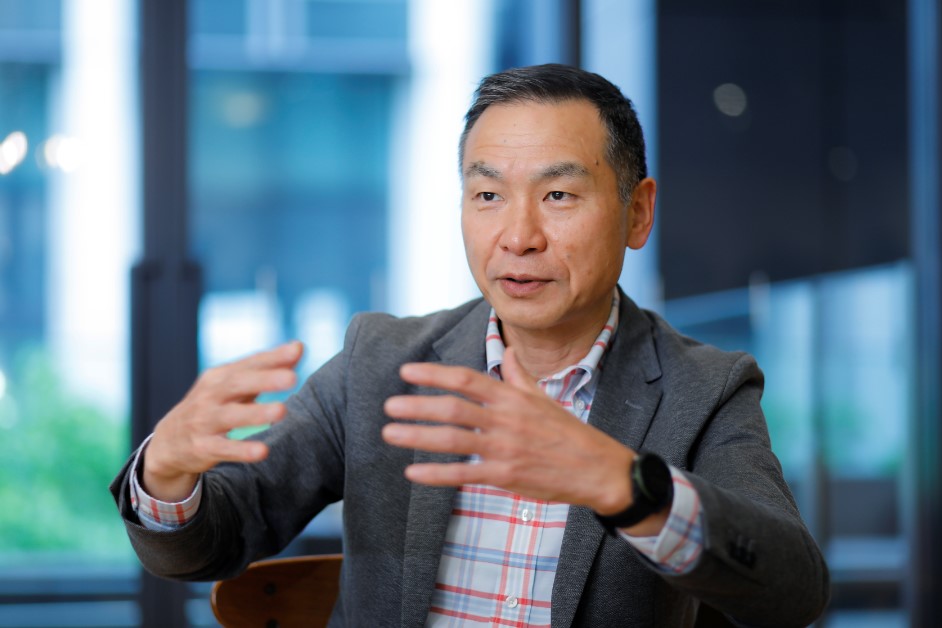
It’s a narrow niche, but that doesn’t mean there is no competition. Indeed, there are many companies in Japan that create systems tailored to customer requests, so what are the strengths of ESG Japan?
“One is that we are a foreign-affiliated company that has experienced many things in the United States during the past 20 years. For example, we might come across exceptional handling in the course of business. Currently, we have about 300 corporate users worldwide, and it is our responsibility with regard to maintaining the packages to respond to market requirements and local laws and regulations by combining product functions. We don’t change the laws, and we don’t charge a fee for each change in the price plan. We need to have enough existing customers to be able to absorb the engineering costs for that purpose. This is also a strength that specialized business vendors have.”
They are not working on systems for all industries, with one of them being a system for new electric power. Instead, they are determined to work exclusively on these packages.
“The business of purchasing and selling power is also a business where it is difficult to differentiate. It must be combined with other products, with the point mechanism incorporated, and the wisdom of businesses created by our Japan customers absorbed somewhere along the way.”
Actually, while Japan’s market liberalized in 2016, this business started in Japan in 2017. Many companies had already created systems, but they still managed to acquire customers.
“We often hear from customers who somehow put together a system in conjunction with the start of the liberalization in April 2016 but then saw various issues surfacing. At that time, there were probably not many options. It was that kind of replacement demand.”
Moreover, they would say that they were asked to pay an additional fee when renewing the fee plan. They also receive inquiries about revising costs for the future and wanting to be able to respond flexibly to strategic changes.
“One new discovery is that companies with huge BtoC foundations also have a need for package systems. Existing systems that go back are very heavy. They are ill-suited to handle campaigns that keep changing. Therefore, there are cases where a new company is created, and a new strategy is developed there with a new system. We hope that it is them who will use our packages.”
The development of e-mail magazines and salon-style webinars with small groups are also popular.
After working at Oracle and SAP, Ando led a Japanese corporation as a managing director of the foreign-affiliated IT company Nutanix, taking charge of growth there. He was apparently thinking about retiring at the age of 60, but, after being contacted by a headhunter, he started a Japanese corporation by himself in 2017.
“My previous company, Nutanix, grew from eight people when I joined to close to 50 in a short period of time, and now it has over 200 people, and it used to be located in Global Business Hub Tokyo. When I was launching ESG and was looking for an office, that’s where I went first of all, but there was no vacancy at the time.”
They want to provide “uniquely Japanese software and services”
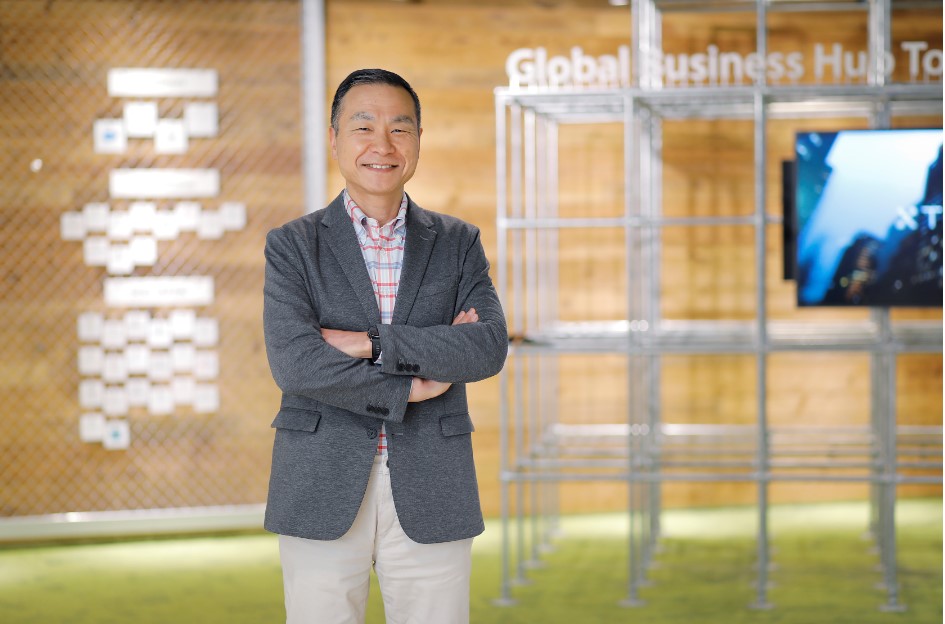
He moved into GBHT two years later. What he liked was the modernity of the office design. It is also located in Otemachi.
“Customers often participate in seminars and study sessions at the Ministry of Economy, Trade and Industry and the Energy Agency. It is very convenient for transportation, also for a quick stop on the way home. Also, be it by bullet train or airplane, it is very convenient to get from here to the rest of the country.”
There are also two things that he feels unexpectedly grateful for. One is that the meeting room usage time is pre-bundled.
“In the office I used to be in, every time I had to use the conference room, it would cost money depending on how long it was used for. Surprisingly, it adds up to quite a lot. With GBHT, it doesn’t cost you up to 30 hours. The network environment is also good.”
The other is the admission badges. For example, in a room for six people, you will usually be given six admission badges, but GBHT will prepare nine badges.
“For example, when the company president comes from the United States, we used to have to rent a room just for the badges. You can use a single badge for two people, but, every time they go to the bathroom, you have to give it to them. It’s not very smart.”
Currently, there are eight employees working in Japan. He says that it is not the kind of business that grows rapidly and becomes a large number of people, but he wants it to grow slowly.
Of the approximately 500 employees worldwide, about 300 are engineers. They place prime importance on excellent support.
“We currently offer about four modules, including business packages, data analysis, and supply and demand management. It is a simple system, but we would like to explore cooperation partners in Japan to expand the range of product value and provide uniquely Japanese software and services.”
Photography: Tomoyasu Osakabe

